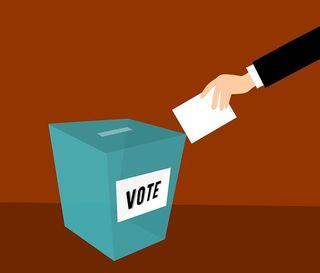Play
Iowa Caucus Highlights Accessibility Issues
Disenfranchisement can play a role in physical and mental ailments.
Posted February 4, 2020

The Iowa caucus has long been adored by cable news and members of the political punditry. On a national level, the official start of the Presidential primary race is often shrouded in a veil of excitement, mystery, and reverence.
However, complications during the 2020 Iowa caucus have caused that veil to be pierced. Intensified media coverage of the process in the absence of results to discuss has shown the nation some startling scenes.
Viewers of the intensified media coverage were treated to scenes such as coin-flipping for delegates, caucus captains haphazardly trading delegates which neither appeared to have actually won, and segments of the official paper trial in one caucus location being strewn across the floor and only attended to when an NBC camera approached the area. The absence of results also breathed more life into a recurrent issue that plagues the Iowa caucus—accessibility.
There are no absentee ballots for the Iowa caucus. This disenfranchises anyone who cannot attend a caucus site due to a disability or general health concern. Eighty-seven Democratic satellite caucus locations were authorized—in part—to reduce the number of disenfranchised voters. One of these satellite locations was the first caucus site devoted to American Sign Language. This is a step forward for inclusion, but it is only a step forward for those who are able to attend a satellite caucus location.
Why voting matters
The American Psychiatric Association has identified altruism, self-expression, and social admonition as reasons other than self-interest for why people vote. Those three reasons sound logical. People generally want their country to succeed and prosper; it is important for people to express their values and see those values reflected in their elected officials; and the right to vote was paid for with the lives of brave people who fought for a better world. Self-interest is a powerful reason, though.
Self-interest takes many forms. However, individuals with disabilities are a population whose quality of life is dictated by elected officials at every level of government. Curb cuts on the city level dictate whether or not someone can use their own sidewalk. Transportation rules on the county level dictate when and where someone who depends on it can travel. Income restrictions on the state and federal levels dictate the work someone can do while keeping the benefits they need to do that work in the first place. In short, voters with disabilities have a lot of self-interest to worry about.
UC Berkeley has reported that "studies have long established that feelings of powerlessness and helplessness weaken the immune system, making one more vulnerable to physical and mental health ailments." The two most common of these mental health ailments are anxiety and depression—which already occur at higher rates in individuals with disabilities than those without.
The American political system is far from perfect. However, one vote in a democracy may be humanity's most powerful creation ever. Taking away the right to vote strips someone of their power in a way few other things can.
This Iowa caucus will be discussed for quite some time. Accessibility needs to be forefront in that discussion because some of the people who have the most to lose cannot even participate in it.
References
Munsey, C. (2008). Why do we vote. American Psychiatric Association. Vol. 39, No. 6
Public affairs. (2014). Wealth, power or lack thereof at the heart of many mental disorders. UC Berkeley


